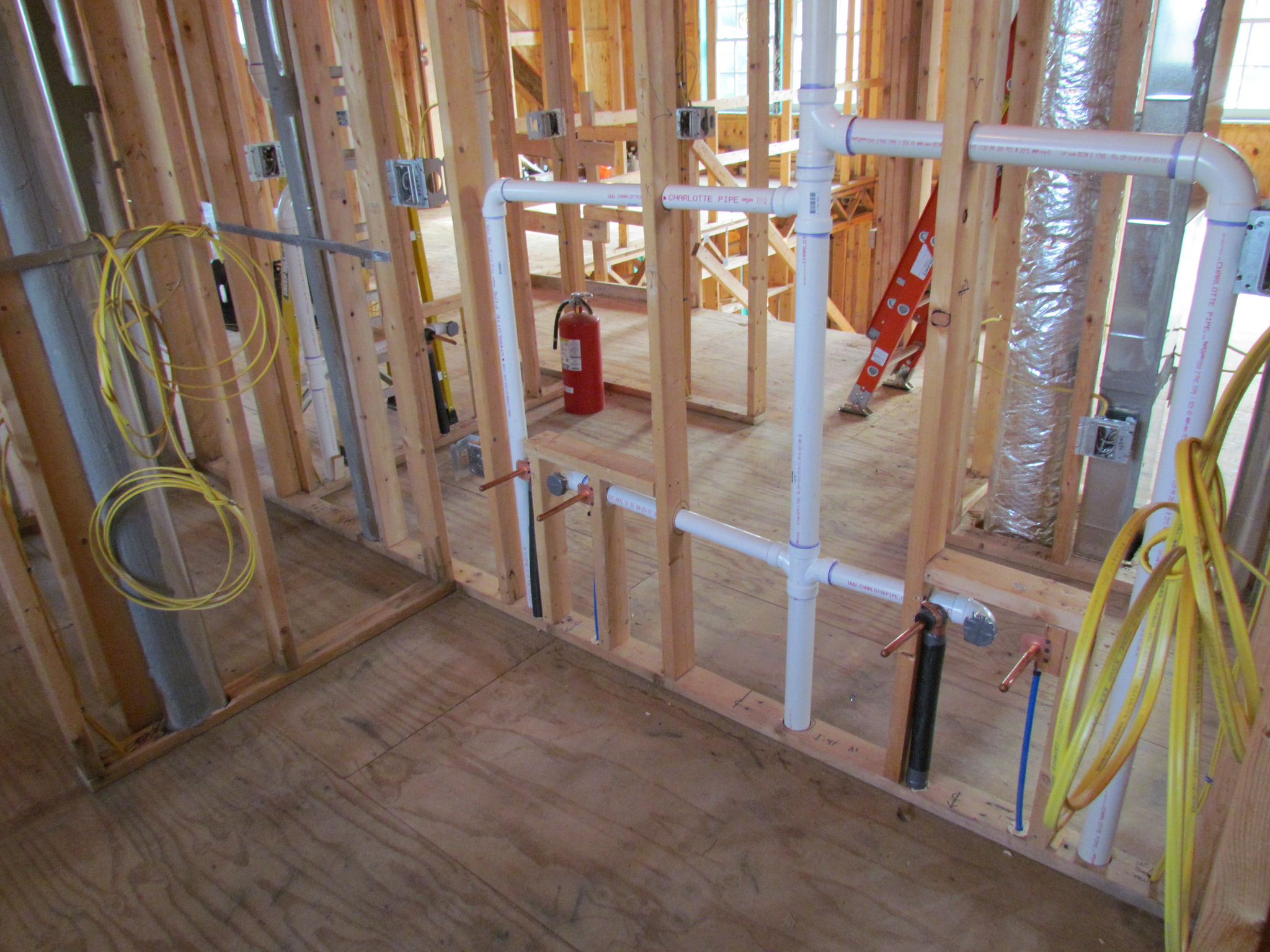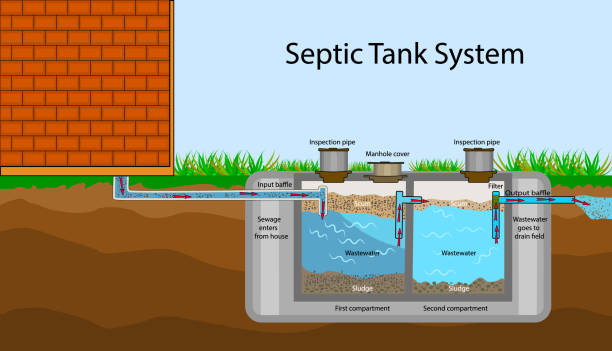Why Your House's Plumbing System Works: Structure
Why Your House's Plumbing System Works: Structure
Blog Article
Do you find yourself trying to find details around The Inner Workings of Your Home's Plumbing?

Comprehending just how your home's pipes system functions is important for every single property owner. From providing clean water for alcohol consumption, cooking, and bathing to securely eliminating wastewater, a well-maintained pipes system is important for your family members's health and wellness and comfort. In this thorough guide, we'll discover the elaborate network that makes up your home's pipes and offer pointers on maintenance, upgrades, and handling typical issues.
Intro
Your home's plumbing system is greater than simply a network of pipelines; it's a complicated system that ensures you have accessibility to tidy water and effective wastewater removal. Recognizing its parts and exactly how they work together can aid you stop costly fixings and make sure whatever runs smoothly.
Standard Parts of a Plumbing System
Pipelines and Tubing
At the heart of your pipes system are the pipelines and tubing that lug water throughout your home. These can be made from various products such as copper, PVC, or PEX, each with its advantages in terms of longevity and cost-effectiveness.
Components: Sinks, Toilets, Showers, etc.
Components like sinks, commodes, showers, and tubs are where water is made use of in your home. Comprehending just how these fixtures link to the plumbing system aids in diagnosing issues and intending upgrades.
Valves and Shut-off Points
Shutoffs regulate the flow of water in your plumbing system. Shut-off valves are vital during emergencies or when you require to make fixings, allowing you to isolate parts of the system without interfering with water flow to the entire home.
Water System
Main Water Line
The main water line links your home to the metropolitan water supply or a private well. It's where water enters your home and is distributed to different components.
Water Meter and Stress Regulatory Authority
The water meter measures your water usage, while a pressure regulatory authority makes certain that water moves at a safe pressure throughout your home's plumbing system, stopping damages to pipelines and components.
Cold Water vs. Warm water Lines
Recognizing the difference in between cold water lines, which provide water directly from the main, and hot water lines, which carry heated water from the hot water heater, assists in repairing and preparing for upgrades.
Water drainage System
Drain Pipes Pipes and Traps
Drain pipes carry wastewater away from sinks, showers, and bathrooms to the drain or sewage-disposal tank. Catches stop sewer gases from entering your home and likewise trap particles that can create obstructions.
Air flow Pipelines
Air flow pipelines permit air right into the drain system, stopping suction that might slow down drain and trigger traps to empty. Proper ventilation is essential for maintaining the honesty of your pipes system.
Relevance of Correct Drain
Making sure appropriate drain avoids backups and water damages. Consistently cleaning up drains and maintaining traps can stop costly repairs and expand the life of your pipes system.
Water Heater
Types of Hot Water Heater
Hot water heater can be tankless or conventional tank-style. Tankless heaters heat water as needed, while storage tanks store heated water for prompt use.
Upgrading Your Pipes System
Reasons for Upgrading
Upgrading to water-efficient components or changing old pipelines can boost water high quality, minimize water bills, and enhance the value of your home.
Modern Plumbing Technologies and Their Advantages
Discover modern technologies like wise leakage detectors, water-saving bathrooms, and energy-efficient water heaters that can save cash and lower ecological effect.
Expense Considerations and ROI
Calculate the in advance expenses versus long-term savings when taking into consideration pipes upgrades. Lots of upgrades pay for themselves through reduced energy expenses and fewer repairs.
Just How Water Heaters Attach to the Plumbing System
Understanding just how hot water heater link to both the cold water supply and hot water circulation lines assists in identifying issues like not enough warm water or leaks.
Maintenance Tips for Water Heaters
Routinely purging your hot water heater to remove debris, inspecting the temperature setups, and checking for leakages can prolong its life-span and improve power efficiency.
Typical Pipes Issues
Leaks and Their Causes
Leakages can occur because of maturing pipes, loosened installations, or high water stress. Resolving leaks immediately avoids water damages and mold and mildew growth.
Blockages and Clogs
Clogs in drains and commodes are often triggered by purging non-flushable items or an accumulation of oil and hair. Making use of drainpipe displays and bearing in mind what drops your drains pipes can prevent clogs.
Signs of Plumbing Problems to Expect
Low tide pressure, slow drains, foul odors, or abnormally high water costs are signs of potential pipes problems that ought to be attended to immediately.
Pipes Upkeep Tips
Normal Inspections and Checks
Schedule annual plumbing assessments to capture concerns early. Seek signs of leaks, corrosion, or mineral buildup in faucets and showerheads.
Do It Yourself Upkeep Tasks
Basic tasks like cleaning faucet aerators, looking for commode leaks making use of dye tablets, or insulating revealed pipelines in chilly climates can prevent significant pipes problems.
When to Call an Expert Plumbing
Know when a plumbing concern needs professional proficiency. Trying intricate repair services without proper expertise can cause more damage and greater repair work prices.
Tips for Minimizing Water Usage
Straightforward routines like repairing leakages immediately, taking shorter showers, and running complete tons of laundry and recipes can save water and reduced your energy bills.
Eco-Friendly Pipes Options
Think about lasting plumbing materials like bamboo for floor covering, which is durable and environmentally friendly, or recycled glass for counter tops.
Emergency Readiness
Steps to Take Throughout a Plumbing Emergency
Know where your shut-off valves lie and just how to shut off the water supply in case of a ruptured pipe or significant leakage.
Relevance of Having Emergency Calls Convenient
Maintain call info for neighborhood plumbings or emergency situation services conveniently offered for quick response during a plumbing situation.
Environmental Impact and Preservation
Water-Saving Components and Appliances
Mounting low-flow faucets, showerheads, and commodes can substantially decrease water use without compromising efficiency.
DIY Emergency Situation Fixes (When Suitable).
Short-term repairs like using air duct tape to spot a leaking pipeline or putting a pail under a leaking faucet can decrease damages until an expert plumbing shows up.
Conclusion.
Understanding the composition of your home's pipes system equips you to preserve it properly, saving time and money on repair services. By adhering to regular maintenance routines and remaining notified regarding contemporary plumbing innovations, you can ensure your plumbing system operates successfully for several years to find.
HOW YOUR PLUMBING SYSTEM WORKS
Which Pipes Do What?
Blue lines = fresh water supply entering the building Red lines = hot water supply entering the building Grey lines = pipes carrying waste away from the building and venting pipes carrying gases away from the building (through the roof) YOUR MAIN PLUMBING SYSTEMS
There are two main plumbing systems that support your home s basic plumbing needs one that brings clean water into your home, and one that sends dirty water away from your home. Connected to the toilet, bath, shower, and other faucets in your home, these two systems keep your water flowing in the right directions.
ACCESSING FRESH WATER
Fresh and clean water is brought into your home through the main water supply line . Filtered through one pipe, this water is pressured to flow into the various fixtures in your home at any given time.
This water can be sourced from a well located on your property, a pond or river (mostly cottages), or, as in most cases, from the city s municipal water treatment centre. However, it is important to note that water that is untreated, such as the water siphoned from ponds or rivers, may not be safe to drink. Personal water supplies always need to be treated for hardness and contaminants before consumed.
MUNICIPAL WATER SUPPLIES
Improve taste and odour Remove sediment Eliminate hardness Reduce chlorine COLD WATER SUPPLY VS. HOT WATER SUPPLY
Cold water flows into your home or building through the service line, which then distributes hot or cold water to your fixtures. This line is most commonly run through a central column that runs floor to floor. Hot water runs in short and straight pipes as the longer the pipeline, the more heat that will be lost in the transfer. Having shorter pipes also allows residents to access hot water more quickly.
WASTE WATER SYSTEM
Your wastewater system is divided into two parts pipes that send wastewater away from your home and venting pipes that send sewer gas away from your home. Sewage water travels through pipes that flush the water and waste towards local sewers that are operated and managed by your city or town. Most sewer systems rely on gravity to move the wastewater to where it needs to go.
The further away from your toilet or sink, the larger wastewater pipes become. This allows for waste to be disposed of from various parts of your home or business at once without pipe blockages. The angle and flow of these pipes are also essential for keeping your waste pipes clear of build up.
https://harrisplumbing.ca/how-your-home-plumbing-system-works/

As a devoted reader about , I thought sharing that short article was a good thing. Do you know about another individual who is fascinated with the topic? Take a moment to promote it. I thank you for your readership.
Booking Report this page